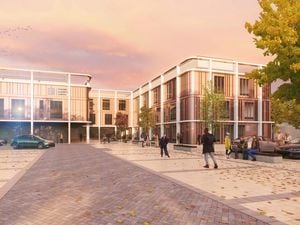The most convenient scapegoat in town
Guernsey’s changing demographics mean that taxes are going to have to rise – but denying sick islanders modern medicines is not the solution, argues Deputy Peter Roffey

States members are shortly going to be asked to significantly increase taxation.
The Policy & Resources Committee have made absolutely no secret of that fact so I don’t feel a frisson of guilt in confirming it as a member of the tax review advisory panel.
Perhaps I ought to worry about such a ‘disclosure’ given the paranoid and disappointing actions of the Committee for Education, Sport & Culture in referring one of its own members to the Code of Conduct Panel. His crime? Sharing the fact that teachers were very much opposed to the committee’s proposals on secondary education.
Talk about OTT.
What next? Surely the best way to resolve differences – or simply to agree to differ – is for all members of a committee to simply sit around the same table and discuss their differences in a grown-up and civilised manner?
But anyway, back to taxation. I have no doubt there will be lots of finger pointing over who is ‘to blame’ for higher taxes. The real answer of course is Guernsey’s changing demographics. But that concept is rather too vague for the populists to rage about, so they will be looking for rather simpler scapegoats to attack.
I was well aware when bringing my amendment, asking the States to keep the promise they made last year on funding medicines, that by doing so I was putting myself in the cross-hairs as the most convenient scapegoat in town. But sometimes what is right is right, whatever the political risks involved.
Anyway, I do find the double standards of some of those who will criticise the funding of proper medicines for sick islanders, and use it as a talisman for why taxes need to rise, rather hard to stomach. Not only is such expenditure absolutely vital but what really sticks in my craw is the fact that many of these critics of funding modern medicines seem to actively support very wasteful expenditure elsewhere.
Let’s look a bit deeper at both sides of the equation – starting with the long-running debate on funding treatments approved by the National Institute for Health and Care Excellence.
Actually, it wasn’t me who brought the proposal to fund treatments up to £40K ICER. That was the HSC committee last year. It was overwhelmingly passed by the States, which raised legitimate expectations.
All my amendment did last week was prevent the Assembly from cruelly reneging on that promise.
The cost? Yes it will be significant. Certainly not the £8m. suggested in some quarters because the Government Work Plan already proposed funding treatments up to £30K ICER, so we are only talking about 24 drugs in the £30-40K range – of which 20 are modern cancer drugs. I estimate it will be between £2-3m. per year, although when I asked HSC to confirm this they didn’t reply.
Do I apologise for this cost?
Not a bit of it. I want to control spending as much as anybody else, but there are far better ways of doing so than denying sick islanders the treatments everybody else in the British Isles can access.
Is it a real driver of tax increases?
Well every little adds to the total burden, but that amendment won’t change the suggested massive step change in taxation in any discernible way. It’s just a convenient whipping boy.
Now, moving on to the potential savings which the so-called fiscal conservatives seem determined to ignore. They are legion, but I will single out just three.
Many of them voted against a review of the provision of primary education, despite knowing that there is wasteful spare capacity in the system, not to mention a large geographical mismatch between where that provision is located and where the demand is.
Why did they vote against?
Frankly, I suspect it was because such a review is likely to lead to a school closure and such a move is close to an act of political kamikaze. What if our predecessors in the States had shown such cowardice and we still had parish schools in Torteval, St Saviour’s and St Peter’s?
What we have to remember is that while capital costs tend to hit the headlines, it is the level of ongoing revenue spending which is the main determinant of required tax levels.
Then there is the forthcoming debate on secondary education. Sure as eggs most of these alleged fiscal conservatives will be lining up to vote for an extraordinarily wasteful and inefficient new school model.
How will they square that circle?
By stripping provision to the bone so that school spending stays within budget despite a wasteful four-site model.
I know it sounds counter-intuitive but the fewer sites you operate the more space per pupil and the greater provision you can afford, simply because of the inherent efficiencies. So ironically, while the much-maligned two-school model was slammed by some for ‘cramming children into restricted sites’, the space standards were far better than under these new proposals, which will really be shoehorning many extra children into three of our four existing schools without any extra facilities.
Once again these ‘prudent new deputies’ will be going for an expensive model – not to mention its educational shortcomings.
Finally, how wasteful is it to throw the full force of both our law enforcement and penal systems at islanders caught using cannabis? Prohibitions are always costly to enforce and should only be used when strictly necessary. In this case it is as misguided, wasteful and socially damaging as it could possibly be.
None of that should be taken as encouraging anybody to use cannabis. I don’t. I don’t encourage them to drink alcohol either, but neither would I suggest dragging anybody through our courts or locking them up for a couple of bottles of Chateauneuf-du-Pape.
In summary, I am afraid that demographics are going to push up the cost of providing essential services and therefore taxes are going to have to rise. Of course this means spending needs to be kept down wherever possible, but the best way to do that is through providing those services efficiently, not by denying islanders something as crucial as modern medicines.





